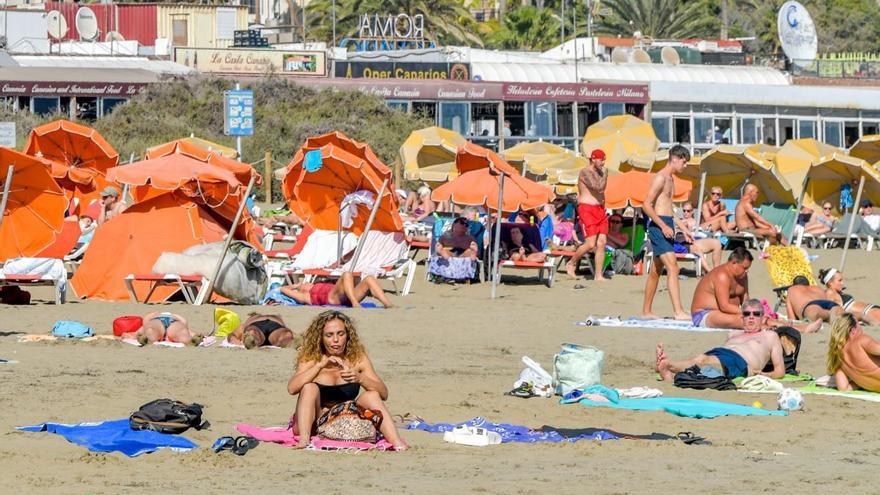
Nothing suggests a slowdown in tourism in Canary Islands. Hotel reservations for this month of January are around 90%, while for February they are already at 80%. All this, thanks to the push of the Germans – whose economy is recovering from the recession – and the English – who remain faithful to their week of sunshine in the Islands despite Brexit -. The hotel sector could fly with these good omens and, above all, it could celebrate after having closed the month of December with occupancy levels similar to those of 2019 – a pre-pandemic year – and even higher than these in some areas.
The only sour notes in the tourism sector are put by the “slight drop in overnight stays” and the “progressive decrease in accommodation places”. Fernando Estany, president of the Las Palmas Tourist Accommodation Business Association (AEAT), downplays the decrease in the number of nights contracted because “it is not significant” and, furthermore, becauseThe Canary Islands maintains its leadership in Europe: “There is no other destination with more overnight stays, not even Madrid, Barcelona or the country. Tourists stay there for two days, while on the Islands they stay for seven.”
According to the loss of accommodation beds, the problem would be mainly in “residentialization” of hotel complexes. This occurs in the tourist areas of all the Islands and, in the province of Las PalmasEstany assures that it is especially suffered in San Bartolome de Tirajana and Mogan. “Beds are removed to put them on vacation rentals when the law does not allow this modality in complexes where there is an exploitation unit. “It’s something illegal,” complaint.
A different case is that of the island of La Palmawhere the loss of beds continues due to the impact of harmful gases from Tajogaite in the Puerto Naos area. Precisely on this Island is where the greatest distortion of data occurs, because although it leads occupancy (86.6%) in its province according to data from the Hotel and Non-Hotel Association of Santa Cruz de Tenerife (Ashotel), only behind Tenerife (88.4%) and ahead of La Gomera (76.1%) and The iron (51.6%), comparisons cannot be made with 2019 precisely because of this disappearance of beds.
Within the prevailing optimism, hoteliers are cautiously observing two possible complications. On the one hand, Germany has announced that it will raise taxes on airline tickets, which increased the cost of the vacation package: “While it is true that the German ambassador has said that her compatriots will maintain the level of vacations this year, we do not know to what extent they will tolerate the price increases,” says Estany. AND, On the other hand, there is concern about international instability: “So far, the wars in Ukraine and the Middle East have not harmed us, but we do not know what can happen,” he says.
So far, the truth is that the data does little to suggest a slowdown. In fact, contracts with tour operators are so high that it is likely that, as soon as Carnivalit is almost impossible for a Canary Islander or a Peninsular to book a hotel room at key points to enjoy the party. like the south of Gran Canaria or the metropolitan area of Tenerife.
















